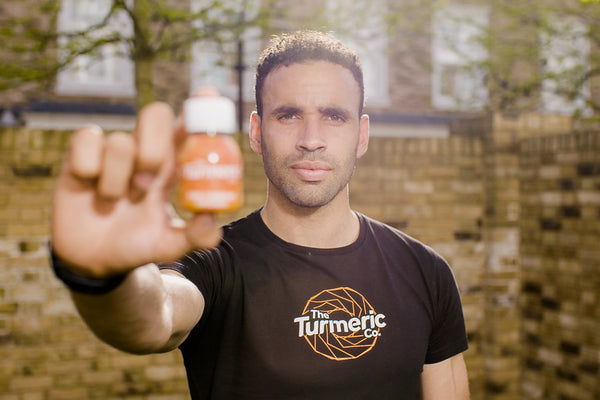The Flaxseed Benefits You Need to Know About
Flaxseed, also known as linseed, is a seed derived from the flax plant. Before it was hailed as a modern-day superfood, the fibres from the flax plant were used in the creation of linen. However, flaxseed has become a staple in many people’s diet thanks to its impressive nutritional profile.
From flaxseed oil to ground flaxseed, there are a number of different ways to incorporate this healthy seed into your diet. Whilst it’s common for people to add ground flaxseed to their morning porridge for a crunchy boost of fibre, many people are unaware of additional flaxseed benefits that could significantly boost their health.
What is Flaxseed Good for?
When it comes to the benefits of flaxseed, it’s no secret that it can provide gut-friendly fibre and a good dose of healthy fats. However, you can expect an array of other potential benefits that may be able to take your health and wellness to the next level.
Flaxseed Oil Benefits for Skin and Hair
If you’re looking to grow long, luscious locks and improve your complexion, then flaxseed should definitely be on your radar.
Rich in hair and skin-loving nutrients, such as vitamin E, omega-3 fatty acids, vitamin B and protein, flaxseed could help to nourish and strengthen your strands and promote a healthy, glowing complexion.
In addition to including ground flaxseed or flaxseed oil into your diet, you can also use flaxseed oil as a topical treatment on your hair and skin. For your hair, you’ll want to start by wetting it with hot water to open the follicles, before massaging around two tablespoons into your scalp and the lengths of your hair. Sit back and relax for at least 15 minutes before rinsing.

It is Incredibly Nutritious
Flaxseed has an impressive nutritional profile. It is rich in a number of healthy fats, including omega-3 and omega-6 fatty acid, as well as being one of the best dietary sources of alpha-linolenic acid (ALA), which cannot be produced by the body so must be obtained from the diet.
Flaxseed oil provides the most bioavailable form of ALA, followed by ground flaxseed. This is because ALA is contained within the fibrous structure of the seed, so less of the oil will be absorbed by the body if the whole seeds are consumed.
In addition to these essential fatty acids, flaxseed is also a good source of:
- Vitamin B1 (thiamine)
- Vitamin E
- Copper
- Magnesium
- Phosphorus
It Can Aid the Absorption of Nutrients
As well as containing a plethora of important vitamins and minerals, flaxseed oil can also aid the absorption of fat-soluble vitamins.

Unlike water-soluble vitamins, fat-soluble vitamins can be stored within the body in the liver and fatty tissues, so do not have to be consumed every day. In fact, overconsuming certain fat-soluble vitamins can be toxic, but a healthy, balanced diet should provide the correct amount.
Fat-soluble vitamins include:
- Vitamin A
- Vitamin D
- Vitamin E
- Vitamin K
But what’s the link between flaxseed and fat-soluble vitamins? The clue is in the name.
Fat-soluble vitamins are better absorbed by the body when taken with fat-containing foods. This is because they are dissolved in fats and then absorbed by fat globules before being transported around the body in the bloodstream.
We incorporate flaxseed oil into our Original Raw Turmeric shots, Raw Turmeric & Ginger shots and Raw Turmeric & Beetroot shots to aid the absorption of fat-soluble vitamins in our formula, such as the vitamin A from the watermelon flesh.
Flaxseed May Reduce the Risk of Cancer
According to a number of studies, flaxseed may be able to reduce the risk of cancer. Flaxseed is rich in plant compounds known as lignans, which contain antioxidants and have similar properties to oestrogen, both of which are thought to lower the risk of certain cancers.
In fact, one study showed that those who eat flaxseed on a regular basis have a decreased risk of breast cancer – especially for post-menopausal women who may have lower oestrogen levels.
Another small study of 15 men showed that those who consumed 30 grams of flaxseed per day, along with a low-fat diet, had reduced levels of a prostate cancer marker – suggesting that flaxseed may contribute to a lowered risk of prostate cancer.
It’s Great for Heart Health
If you’re trying to look after your heart (and who isn’t?!), then flaxseed may be your perfect match.
Rich in a plant source of omega-3 fatty acids, flaxseed is thought to be able to improve heart health by lowering blood pressure and contributing towards a regular heartbeat, which may help with the treatment of arrhythmia.

Additionally, omega-3s are thought to help prevent the hardening of the arteries and reduce plaque build-up within them.
Finally, consuming flaxseed on a regular basis may help to lower cholesterol, which could reduce the risk of heart disease, obesity diabetes and metabolic syndrome. This is because flaxseed contains phytosterols, which are plant compounds that have a similar structure to cholesterol and help to reduce the absorption of cholesterol in the intestines, lowering levels within the blood.
It’s Thought to Reduce Symptoms of Arthritis
However, one of the purported benefits of flaxseed suggests it may help to reduce certain arthritis symptoms, such as inflammation and stiffness. This is thanks to its high levels of ALA and omega-3s, which contribute to the maintenance of the structure and function of joints, as well as the reduction of inflammation.
It Could Aid Digestion
Looking to improve your digestion? Evaluating the foods you’re putting in your body should be your first port of call, as these can have the biggest impact on your gut health.

Flaxseed is often used to alleviate certain digestive issues, such as bloating and constipation. The primary reason why flaxseed is so good for maintaining a healthy digestive system is because it’s made up of 95% fibre – primarily soluble fibre - which helps to keep things moving through your system.
In addition to the incredible fibre content, flaxseed contains high levels of healthy fats, which help to keep your system lubricated, making it easier for things to pass through your digestive system.
Finally, the omega-3 content of flaxseed is thought to contribute towards a reduction in inflammation in the body, which could help to alleviate certain symptoms of some digestive disorders, such as inflammatory bowel disease.
However, it is important to note that whole flaxseed can be difficult to digest, so it’s best to consume ground flaxseed or flaxseed oil to reap all of the digestive benefits.
From adding ground flaxseed to your porridge each morning alongside your raw turmeric shot, to incorporating it into your homemade bread – flaxseed is an incredibly versatile ingredient that can have a huge benefit on your health.

The Hal Robson-Kanu Guide To Fitness & Nutrition
Gain exclusive insight into habits that will make every day a healthy and fulfilling one.












